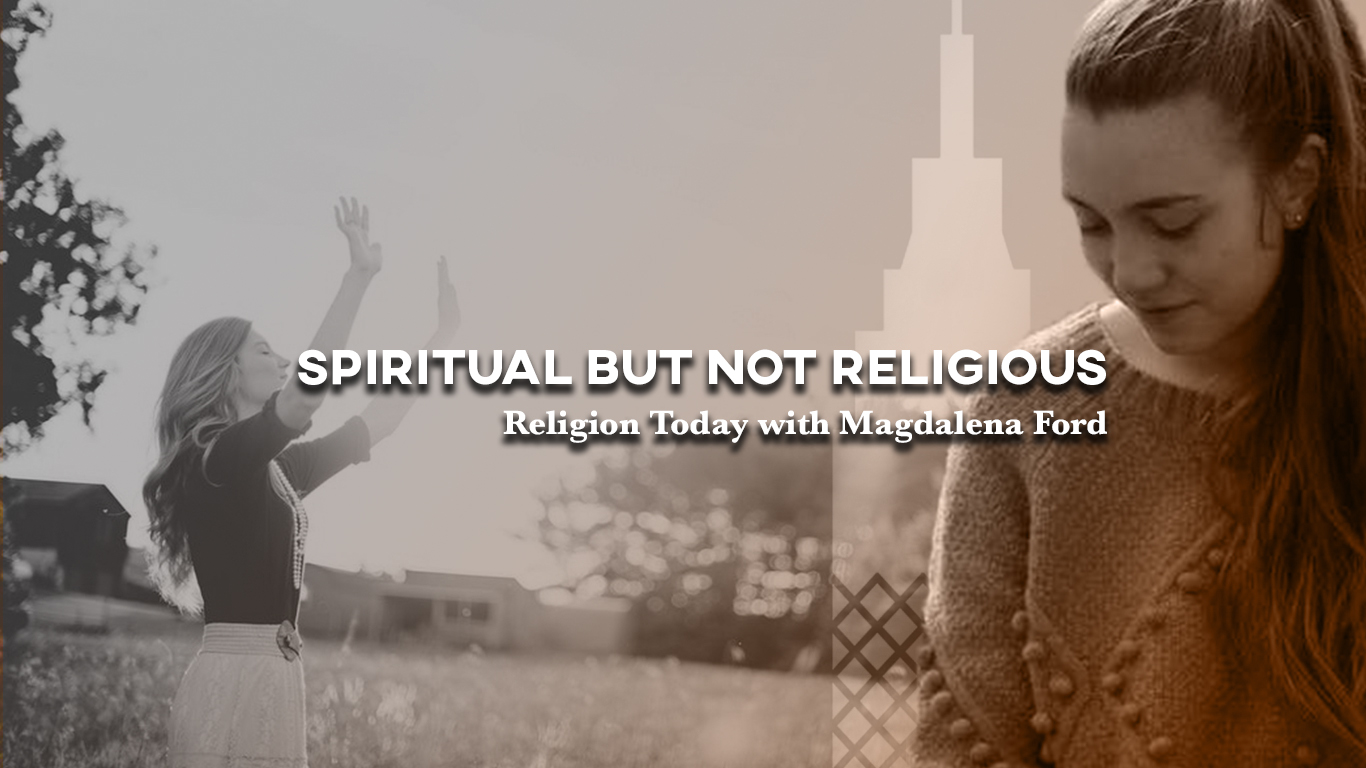The Widening Gap between Organized and Individual Religion
|| Graphic by Bernadette Berdychowski.
The opinions reflected in this OpEd are those of the author and do not necessarily reflect the opinions of staff, faculty and students of The King's College.
We’ve all heard it before—perhaps we’ve even said it ourselves a time or two—“I’m spiritual but, not religious.” But have we ever stopped to think about the implications of that phrase? What do those words mean, both to people who identify as religious, and to people saying them?
In the 2012 survey by the Pew Religion and Public Life Project, nearly a fifth of those polled said that they were not religiously affiliated. Among that group, nearly 37 percent were “spiritual” but not “religious.” In a 2017 survey, stats from by the Pew Research Center showed that over a quarter of people today consider themselves spiritual but not religious (SBNR), a number which has risen exponentially in the last two decades.
Dr. Benjamin White, a religious studies professor at The King’s College describes this phenomenon as moralistic therapeutic deism, or MTD—a phrase coined by sociologists to describe the common beliefs among American youth. But this phenomenon has grown far past those bounds, becoming adopted by the twenty and thirty-year-olds as well as the teens in youth group being discussed in the study.
MTD reflects our cultural image of the good life; whereas we used to be interested in being morally correct (being “good”), we are far more interested now in being happy than we necessarily are in the truth. These are people, who have typically been raised in a religious home, who still see the value of these beliefs in their lives, as a tool to increase happiness, but are not interested in working in a religious framework due to disagreements with “the establishment” or rules/laws in general.
These ideas in action end up looking a lot like The New York Society For Ethical Culture, located in the UWS of Manhattan. This is a group which meets in a hundred-year-old building on Sundays and sings hymns dedicated to ethics and morality. The “Members are committed to personal ethical development in their relationships with others and in activities involving social justice and environmental stewardship,” but the website also explicitly states that the movement is centered, “centered on ethics, not theology.”
“It’s basically a product of a Post-Christian world,” White explained. “We live in a time where we view the ideas present in each religion as a sort of religious buffet where we can take what we want and leave the rest.” This leaves us with a paradoxical sort of pluralism (a theory or system that recognizes more than one ultimate principle) where the reigning ethical framework becomes relativism, where, based on any number of societal factors, anything goes.
This trend becomes all the more apparent the moment you enter the young workforce in Manhattan. Trendy workspaces such as WeWork entice a younger generation, who bring their ideas with them into the workplace.
“Because they’re younger, I’d say about 70 percent of my colleagues I’ve talked with ascribe to being spiritual but not religious.” Meg Serian, a broker with the Farrell Group located in the WeWork on Broad Street, confessed. It’s very inclusive, but that also means there’s very little space for questioning the practices of others.
We’ve reached Fukuyama's tragic End of History, not in the world, but in the west. The United States has reached the point where we have become so politicized that the only beliefs that matter are our political ones. it is narrowing the complexity and richness of public life.
Alissa Wilkinson, syndicated columnist at Vox, explains it this way: “Our horizons are constrained by our culture.” We’ve reached the universal homogeneous state, and we’re losing art, philosophy, and religion because of it. Of course it provides for private religion, but there’s nothing beyond that. Communal knowledge is lost and individualism reigns.
At the point in which everything in our society has become political, there is very little room for the complexity and richness provided by the fullness of religious practice. Grappling with the good, the bad, and the ugly of religion strengthens a complex faith and is made impossible by a weak one. We are at the point where we must ask ourselves, “We are eating from the buffet, so why isn’t anyone happy?”

